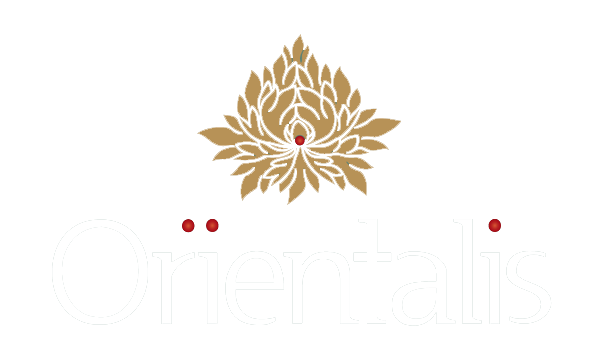An Anti-inflammatory Diet
If you suffer from a condition where you experience inflammation – such as tendonitis, sinusitis, colitis, osteoarthritis….(the many ‘itis’ conditions), then diet therapy plays an important role in returning your body to wellness or managing the condition. We need to remove foods known to cause inflammation and increase antioxidant foods.
Some of the most healing anti-inflammatory foods that we need to regularly eat include:
All types of vegetables, especially green leafy kinds.
Veggies are loaded with antioxidants that fight oxidative stress, one of the primary causes of inflammation. Try to make half your plate cooked, fresh veggies with every meal. Each day include these types of veggies: kale, broccoli, spinach, lettuce, silver beet, bok choy, parsley, coriander and other greens. These leafy and cruciferous vegetables are especially high-antioxidant foods loaded with vitamin C, vitamin K and minerals that speed the healing process.
High-quality plant proteins and ‘clean’ proteins.
Protein is important to help repair damaged tissue throughout the body. Protein deficiency can cause weakness, delayed recovery, fatigue and body pains. Foods high in protein contain complex amino acids and omegas and can be found in nuts, seeds and legumes. These need to be eaten each day. Nuts and seeds can be toasted and included on breakfast muesli or granola, and sprinkled over salads and vegetable dishes.
It’s important to not rely on animal products for your central protein source as they can be another cause of inflammation. The benefit of clean and lean protein, is that it contains high levels of zinc. Zinc is found in lean beef and fresh fish but better still, it is also found in high levels in nuts and seeds as well as spinach. Zinc benefits include tissue development and repair. So get to know your proteins and mix them around to be sure that your animal proteins are not part of your problem.
A good rule of thumb is to try to get 120gms of quality clean protein only 1-2 times per week. Some of the best choices that include easily utilized amino acids are organic lean proteins like: wild-caught fish (a great source of anti-inflammatory omega-3 fatty acids), free range eggs or grass-fed lean beef.
Berries
Berries are packed with vitamin C that helps with rebuilding collagen, an essential component of tissues. Other vitamin C foods include citrus fruits, squash, green veggies and bell peppers. Berries are also a great source of antioxidants that fight free radical damage, one of the causes of increased injuries into older age.
Pineapple is another seasonal fruit choice in high summer because it supplies bromelain – a compound that treats swelling and injuries.
High-potassium and magnesium foods
Potassium-rich foods like coconut water, avocados, greens and bananas in their correct season can speed healing. The magnesium found in these foods are also important for muscle recovery and healthy circulation.
Bone broth
Bone broth naturally contains collagen, which is beneficial for healing tendons and connective tissues and is a central component in the body developing healthy tissue. It is helpful for tendonitis and can aid in recovery from sprains, strains and ligament injuries.

Foods that increase inflammation in the body and need to be avoided:
Alcohol and caffeine
Alcohol can prolong inflammation and promote bone loss, as can caffeine which contains specific compounds that bind to calcium. We need calcium to help heal tissue that’s been damaged, so consuming these stimulants will inhibit your body ’s ability to repair itself. Avoid alcohol and minimise caffeine consumption.
Too much sodium and salt
Sodium (found in nearly all packaged foods) counteracts potassium, and too much contributes to the loss of important nutrients from your body that are needed to facilitate the healing of damaged tissue. Avoid processed foods that are high in sodium and only add a high quality salt directly into your cooking.
Sugar and refined grains
High levels of added sugar can decrease immune function, slow down wound healing and increase inflammation. They cause dips and spikes in blood sugar and contribute to fatty deposits and weight gain. You need to kick your sugar addiction to eliminate your unwanted inflammation.
Hydrogenated oils and fried foods
Just like refined sugar and refined grains, refined oils are found in processed foods and are known to cause inflammation. This is because they are a source of ‘pro-inflammatory’ omega-6 fatty acids. These are the bad fats. Substitute them with good fats such as avocado, cold pressed oils and nuts.
Dairy foods
Dairy milk, cheese and butter contain two proteins called whey and casein. The casein (found in high levels in cheese), is a difficult to digest protein. As it breaks down in the digestive tract it releases casomorphins that act like an opiate in the body. (This is the cause of the addiction response to cheese that many people experience.) Casein puts great strain on the digestive process as well as disrupting your gut’s good bacteria to create an inflammatory response. Try substitution instead with nut milks and cheeses as you transition the craving for the casomorphins.
Eliminating the above foods will reduce your inflammation markers, support natural weight loss, and give you more energy and a healthier metabolism. You will need to be more organised to make positive food choices and change your shopping habits to succeed.
